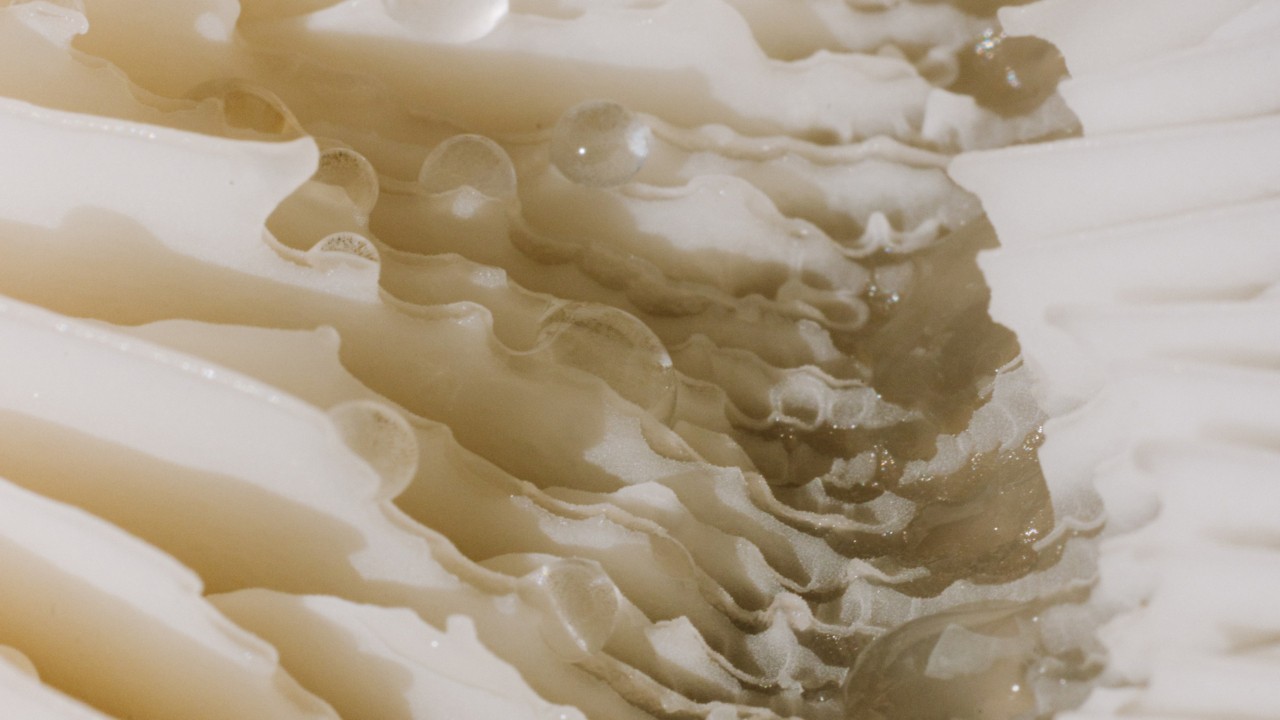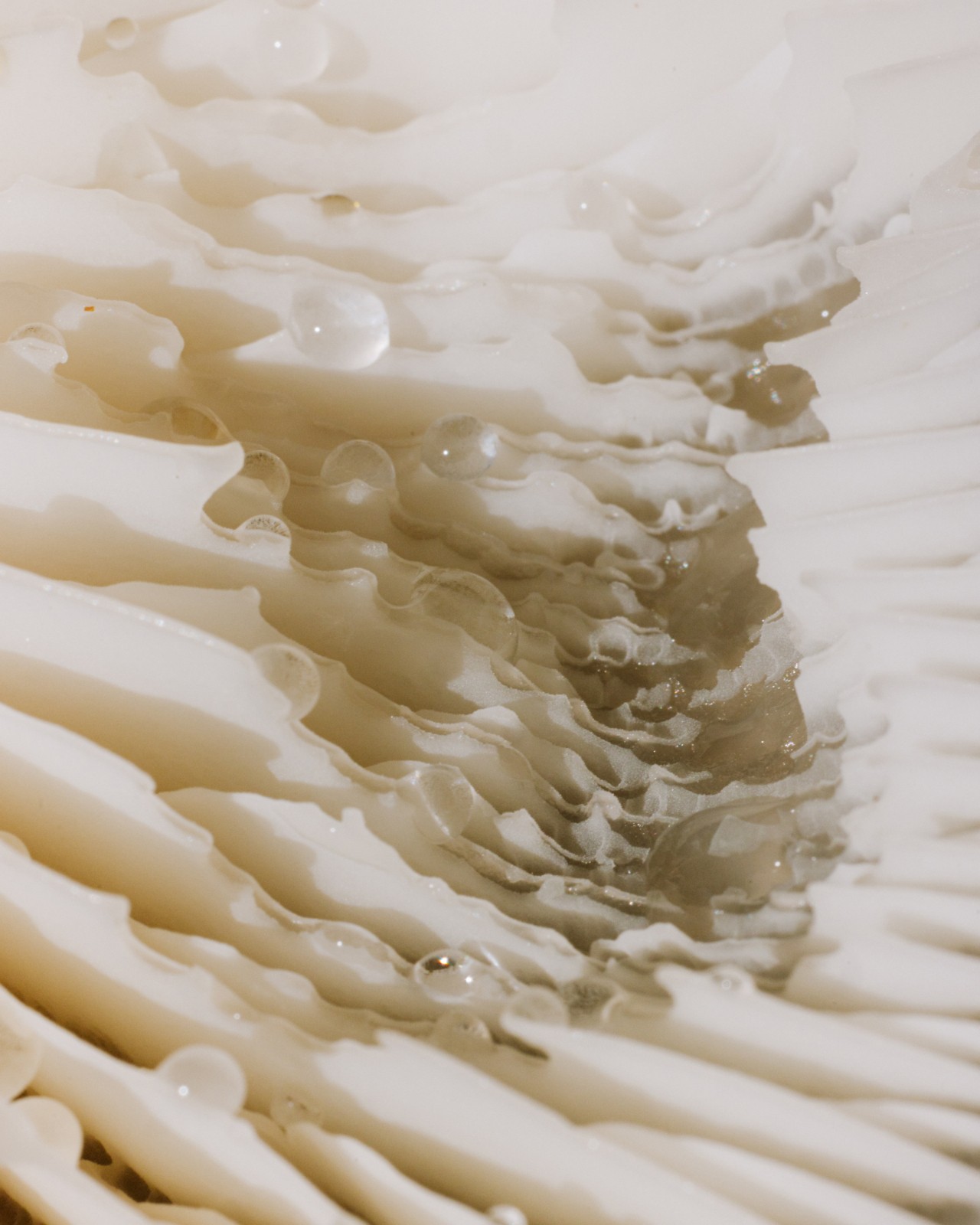

Photograph by Tobias Nicolai / Connected Archives
words by willow defebaugh
“The grammar of animacy teaches us that all the world is alive. Rocks and mountains, plants and rivers, fish and birds—all are spoken of with the same respect as humans.”
—Robin Wall Kimmerer
Language matters—it shapes our relationship to matter itself. In the West, language has been used to reinforce a boundary between humans and the rest of nature, defining personhood to exclude most of the living world. But what if I told you that was changing? What if we spoke in a way that recognized the intelligence, agency, and kinship of rivers, fungi, and whales? The term more-than-human, popularized by eco-philosopher David Abram, challenges the idea that non-human life is lesser. It invites us to see the beings we share this planet with as our elders.
This shift in language and consciousness is at the heart of the work of MOTH. Short for the More-Than-Human Life Project, the New York University Law School initiative advances the rights of all beings in the web of life. This week, I’ve been attending their inaugural festival featuring legal scholars, Indigenous leaders, scientists, artists, and activists. The conversations I’ve witnessed so far have reached beyond the theoretical—they are urgent, deeply felt, and aimed at reshaping the frameworks that govern our world in a tangible way.
The festival opened with a talk from MOTH founder César Rodríguez-Garavito, who spoke about the use of language in healing our relationship to the more-than-human. “To remember is to bring back together,” he said. “To respond means to promise back. And the idea here is that by looking at the ancient origins of some of our Western words—let alone the ongoing terminology of so many Indigenous peoples—we can remember that we know how to do this. This is why the etymology of the word ‘human’ is helpful… the root of which means earth, soil, humus.”
This remembrance is something Indigenous communities have carried and safeguarded for generations. As José Gualinga, a leader of the Kichwa Indigenous People of Sarayaku, said: “It’s time for [Western] science and our ancestral Indigenous science to walk hand-in-hand together in this fight.” His words at the festival conveyed a truth many of the other speakers returned to: The solutions we seek are not new, but rather require listening to those who have long understood what it means to live in right relationship with the more-than-human world.
Traditionally, it has been a taboo in Western science to anthropomorphize more-than-human life. And while I’ve established this as a favored pastime, biologist and Entangled Life author Merlin Sheldrake took it a step further in his conversation with journalist Jonathan Watts. He questioned: Rather than try to see fungi as more human, why don’t we try to make humans more fungal? He motioned us to see these transformational times as an invitation into deeper interspecies relatedness: “Crisis is a crucible for new symbiotic relationships.”
Of course, language doesn’t only shape how we see the world but how we commune with it. One of MOTH’s initiatives is its partnership with Project CETI (Cetacean Translation Initiative), which is attempting to decode the language of sperm whales. As founder David Gruber shared with the festival audience, they have found that sperm whales communicate with an alphabet, and even have different dialects around the world. This effort is not just about communication, though—it raises crucial questions about interspecies relationships, ethics, and rights. If we can learn to “speak whale,” what new responsibilities and protections might that knowledge afford?
In Braiding Sweetgrass, Robin Wall Kimmerer describes much of what I’ve described here as the grammar of animacy: guiding us toward speaking of the more-than-human as alive, not in terms of “it” but “she,” “he,” and “they.” Rewriting our personal and cultural lexicons is a critical first step to shifting our relationship with the world around us—and as we are seeing, can produce palpable victories when it comes to how we protect life on this planet. So if you’re reading this and wondering what you can do, I invite you to begin by rewilding your language.
Correction,
March 14, 2025 8:03 am
ET
This story has been updated to correct the name of Jonathan Watts, which was previously written as Jonathon Watts.
Embracing the More-Than-Human Through Law and Language